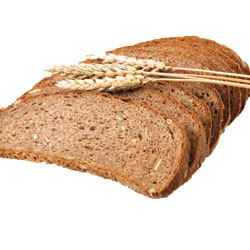Looking for the Perfect Diet
Looking for the “Perfect Diet”
Many people believe they are overweight and “go on a diet” to correct that problem. Obviously, these people expect to lose weight! These expectations are generally unrealistic. The truth is that about 90-95% of people who diet either don’t lose weight, or lose some weight and gain it all back, often and then some. Would you take a medication or other treatment for your health if it had that kind of success rate?
Typically, people are able to follow a new diet for a short time, perhaps achieving some success at weight loss. They may even feel a real thrill when they are successful at controlling themselves! Most people gradually slide back into old food habits for very good reasons. After all, “we eat what we like and we like what we eat”.
Yet we continue to think that we should be able to restrain ourselves and not eat our favorite foods, our comfort foods. Why do we think we should be able to avoid or limit foods we love?
The “False Hope” Syndrome
So, hope springs eternal, and in this case, false hope. We think we should just try harder and be more disciplined. Or, we think the next new diet will be “the one that works”. This idea gives the power to the diet itself to “work”. If we could just find the right combination of foods or nutrients or the times of the day we eat, we will finally be able to be in control.
The basis of this argument is false! When we restrict the number of calories we consume, the body revolts and fights back, leaving us hungry, irritable, and constantly thinking about food. Our bodies are designed to maintain the status quo, both in terms of body weight and the amount of food we eat. Ever notice that when you’re “on a diet” food becomes the central focus of your day? It’s not the diet that has to be the right one, it’s a change in philosophy about the idea of dieting that’s in order.
There is an alternative to dieting!
What if you tuned into your body’s signals and
? ate only when you were physically hungry,
? ate the foods you REALLY wanted to eat, and
? stopped when you were full?
Sounds pretty good, doesn’t it? Well, it’s possible! This is the way to MAKE PEACE WITH FOOD. But, remember, these ideas are simple, but not easy to implement. It takes skill and training to live this way with food, and it is very empowering. There is no need to allow food to control you.
The Process of Weight Gain and Weight Loss
Weight gain is the very simple process of eating more calories than we burn. There’s nothing more complicated about it than that!
A calorie is a measure of potential energy. Calories in food represent potential energy that our bodies can obtain from that food. When we consume food that provides more calories than we need to fulfill our energy needs for that time period, we store that extra energy as body fat. Fat on our bodies is a storage of energy, or calories.
Food is fuel for our bodies
When you consume fewer calories than you need, you lose weight. All weight loss “diets” work using this very simple principle. They may include more or less of one nutrient or category of foods, but in the end they work by causing you to consume fewer calories.
Using Your Hunger and Fullness Signals to Manage Your Weight
Whether you want to lose weight or maintain the weight you’re at, you have the internal mechanism to tell you when to eat and when to stop. The truth is that this internal “regulator” is the most powerful tool to help you manage your weight.
All humans are born with a hunger and fullness mechanism, but some people are more sensitive to their body’s signals than others. I find that many people simply override their internal signals of both hunger and fullness.
“Dieting” is designed to undermine your hunger and fullness signals by regulating you from the outside. You are told what and when to eat, and to ignore your internal signals. Dieting assumes that your internal signals do not work; this is not true!
How Does Hunger and Fullness Rating Work?
I recommend using a Hunger and Fullness scale. There are 10 gradations or points on such a scale; it’s a continuum from “empty” to “sick”. For example, at “5” you are not hungry and not full, just in between. “Hunger” is anything less than 5, and “fullness” is anything more than 5.
You can experiment with this scale during your day by stopping and just noticing where you are on the scale and how that feels to you.
How would you rate your level of hunger/fullness right now?
Learning to eat when you are hungry and stop eating when you are full gives you the tools you need to manage your weight without dieting.
-
Exercise And Low Carb Diets Make Poor Partners
Over the last twenty five years the most common questioned asked me by
-
7 Ways to Beat Post Holiday Food Blues With a Detox Diet
The holidays are a time where you can overindulge and throw all die
-
5 Diet Pill Free Weightloss Tips For Powerful Living
Before you even think of taking diet pills to lose weight, carefully c
-
Fat Loss Can Jump Start Your Metabolism Quickly
Did you know that breakfast is still the
-
Yeast Free Diet - Why a yeast free diet?
Yeast is an active bacterium that is used in many foods in the U.S.
-
Phytopharm Unilever Hoodia Product Still In Clinical Research Phase
Phytopharm hoodia product development was delayed, somewhat, when Pfiz
- DON'T MISS
- Halloween Calories – Ways To Avoid Packing on Extra Pounds
- Eat this, boost energy
- Do Whole Eggs Help Burn Belly Fat?
- Waist-Whittling Spicy Green Juice
- Water And Weight Loss
- Making Your Home Workout Beneficial
- Weight Elimination Tips – Selecting The Ideal For You
- Turbulence Training For Getting In Shape
- Nutrition and Exercise
- Exhaled carbon monoxide levels indicate stroke risk and heart disease




